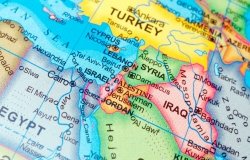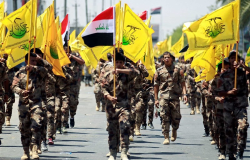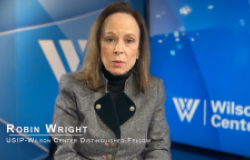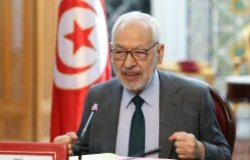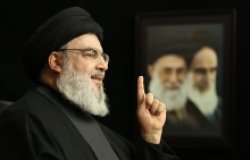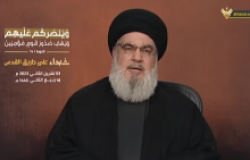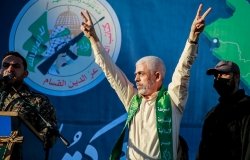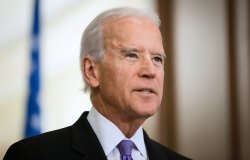State Department: Cairo Needs to Include Brotherhood
On June 21, senior State Department officials called on Egypt’s government to take a “very politically inclusive approach” and find ways to reach out to the Muslim Brotherhood.
On June 21, senior State Department officials called on Egypt’s government to take a “very politically inclusive approach” and find ways to reach out to the Muslim Brotherhood. The officials also emphasized that Washington does not share the Egyptian government’s view about links between the Muslim Brotherhood and terrorist groups like Ansar Beit al Maqdis. The following is an excerpt from the briefing, held as Secretary of State John Kerry departed for Cairo.
SENIOR STATE DEPARTMENT OFFICIAL TWO: With regard to the approach of the Egyptian Government towards the Muslim Brothers, I’d make a couple of points. We do not share the view of the Egyptian Government about links between the Muslim Brothers and terrorist groups like Ansar Beit al-Maqdis. We do not have information that would substantiate that link. We have asked the Egyptians to share that information with us if they have such information, but at present we do not have that information.
We believe that in a general sense, the Egyptian Government needs to have a very politically inclusive approach, which means that they need to include and find ways to reach out to the Muslim Brothers. We think it’s very important that President al-Sisi have a politically inclusive approach.
SENIOR STATE DEPARTMENT OFFICIAL TWO: A political challenge. I think it’s a challenge that the Egyptian Government needs to find a way to address, to reach out. We understand that the Egyptian Government for their part believe that the Muslim Brothers have basically opted for a policy of confrontation with the government, and that if the Muslim Brothers want political reconciliation and want to be included, then they need to make clear – and we have told them that – they need to be very clear that they don’t support violence and they need to make clear that they want to be a part of the political solution going forward in Egypt. And we’ll continue to send that message to them.
SENIOR STATE DEPARTMENT OFFICIAL THREE: I would say that message has two main parts and it’s very similar to the two main parts of a message that we use in discussions with Iraqi official and leaders as well. And the first is to underscore the severity of the threat posed by ISIL and certainly to Iraq, but we believe also very much to Iraq’s neighbors, to the entire region, and to the United States. And first and foremost, we are urging countries that have diplomatic dealings with Iraq and that are in the region to take that threat as seriously as we do.
Second, we are underscoring the need for Iraqi leaders to expedite their government formation process and to come together around a new government that is inclusive and that takes into account the rights, aspirations, and legitimate grievances of all Iraq’s communities. This is a message that we’re conveying to countries in the region not because we are asking them to intervene in any way in Iraq’s politics – there are obvious sensitivities around that – but because many of these countries maintain their own relations with Iraqi officials and leaders, and we ask that they are echoing the same message that we’re conveying that addressing Iraq’s security situation, the threat posed by ISIL, is much more likely to be successful in the context of an inclusive government that is formed in short order and can begin addressing this threat from a solid, broad foundation of support.
QUESTION: I wanted to ask whether you’re concerned that coming so soon after President Sisi’s inauguration before he has really had a time to establish and show the colors of what kind of rule he’s going to have, is actually going to send the wrong message to many people who are concerned about the political environment in Egypt going forward.
SENIOR STATE DEPARTMENT OFFICIAL TWO: I’d make a couple of points. First, we have a longstanding relationship with Egypt. It’s a very important relationship that’s built on several different pillars. It’s at a difficult juncture right now; that’s true. And we have serious concerns about the political environment, the lack of political space; all these things are true. But because it’s a complicated relationship and we’re balancing different interest and we have a significant number of shared interest, we felt like this was the appropriate time following up on the President’s phone call to – for the Secretary to come here and to explore those shared interest both for regional security, trying to help Egypt address critical concerns like counterterrorism, border security, proliferation of weapons, security issues related to regional concerns like Libya. But also it’s an opportunity for us to raise the political environment in the context of what you described as an issue of concern and to make clear that we think that many of the tactics that they’re using are counterproductive and that they’re polarizing Egyptian society. So it’s – we’re balancing those different concerns, but we think that the timing is appropriate to do that.
SENIOR STATE DEPARTMENT OFFICIAL TWO: The message that the Secretary will convey in these meetings about those issues is as follows. With regard to the mass trials and death sentences, he has made clear in the past in his meetings with Egyptian officials and he will do so in the future, including on this trip, that basically those trials are, in essence, an outrageous sort of flouting of the ordinary norms of due process. I mean, it’s difficult to see how people could receive – individuals could receive due process especially in cases that involve the death penalty where several hundred people or more are on trial in a single trial that lasted two hours or less. We understand that these verdicts are going through the judicial process and that there have been appeals and those appeals are continuing and that the numbers are dropping every – at every stage. But it remains true that those trials are a serious issue of due process concern for us and for others in the international community.
Click here for the full briefing.
Related Program

The Islamists
Learn more about Hamas and how it relates to similarly aligned organizations throughout the region. Read more

